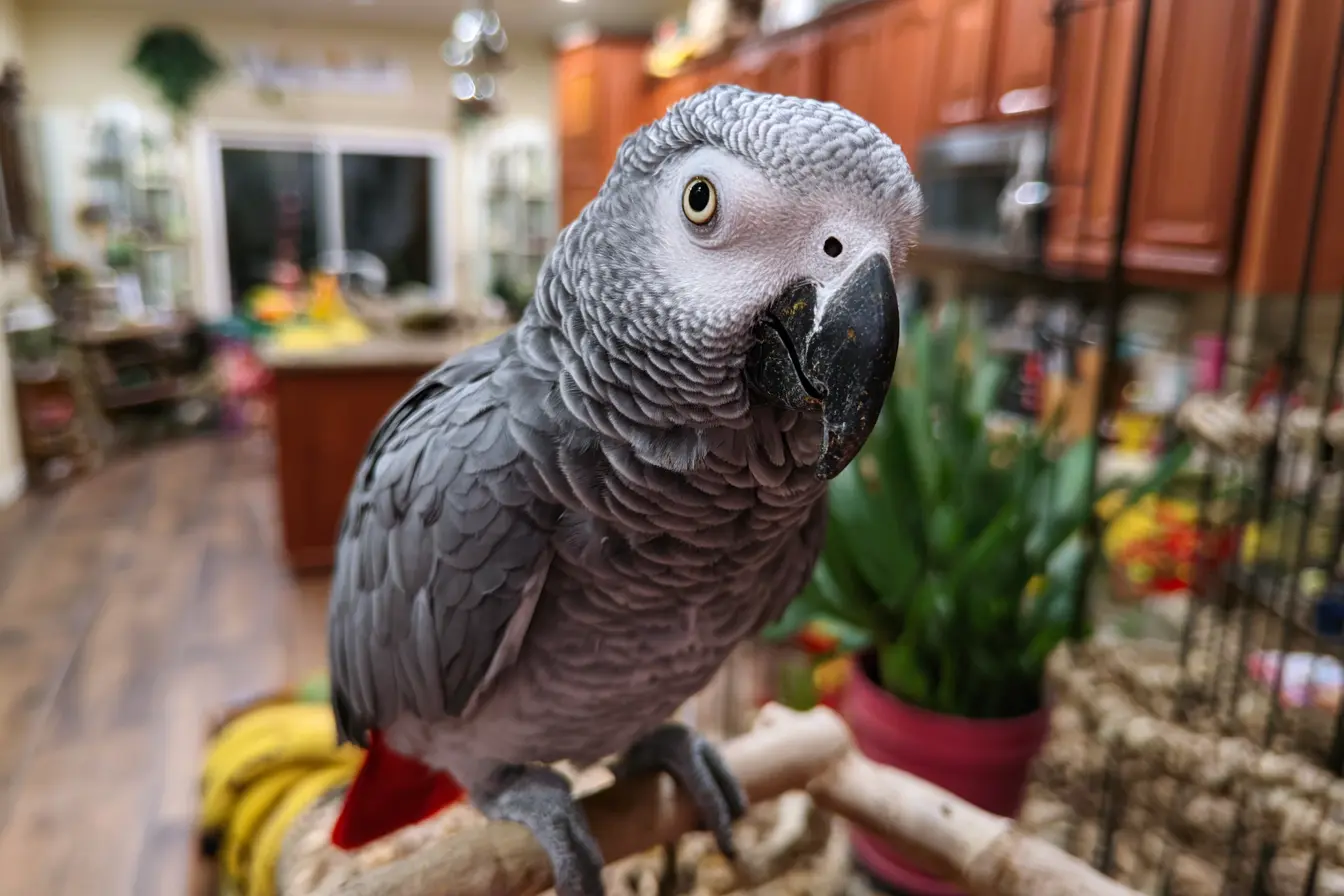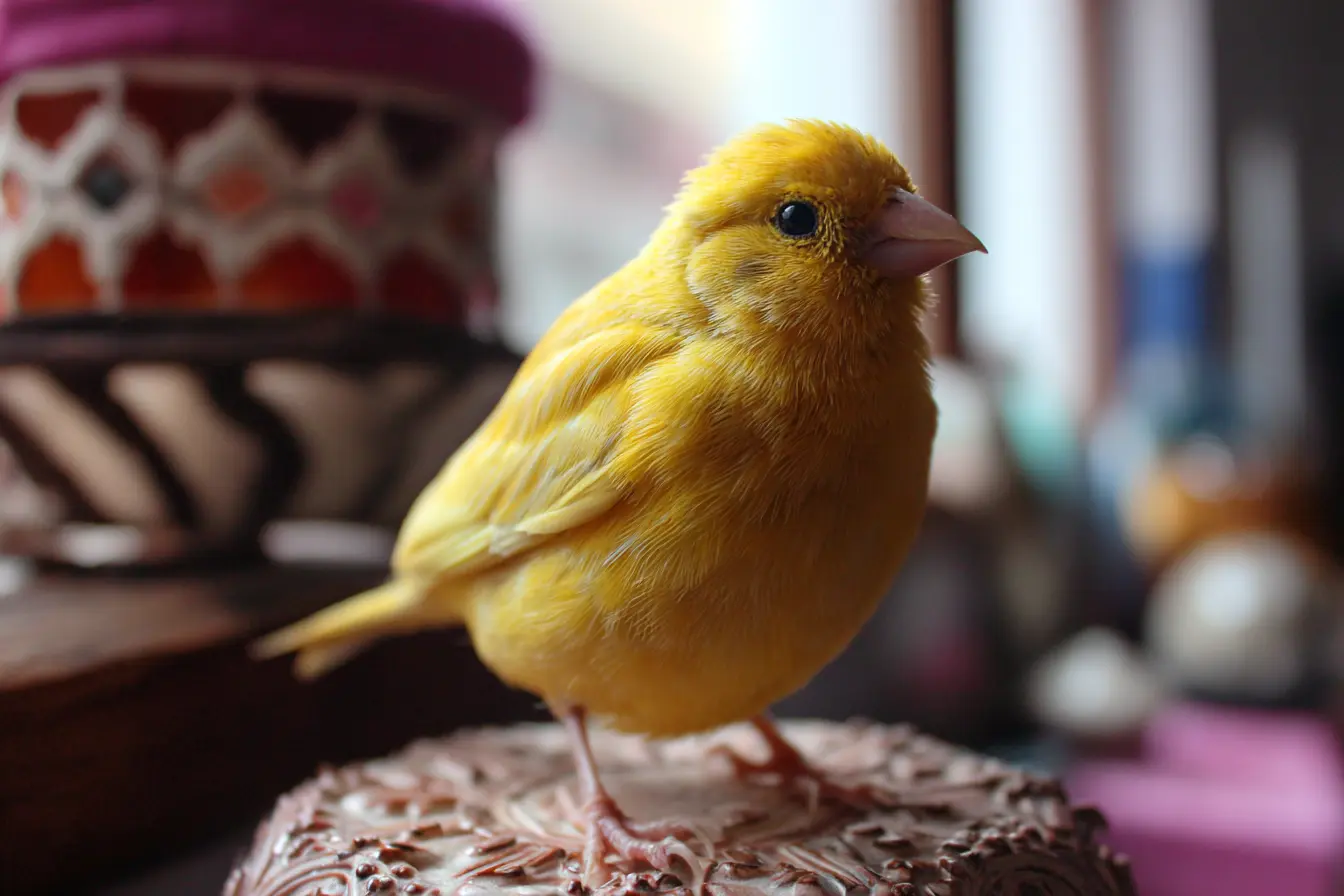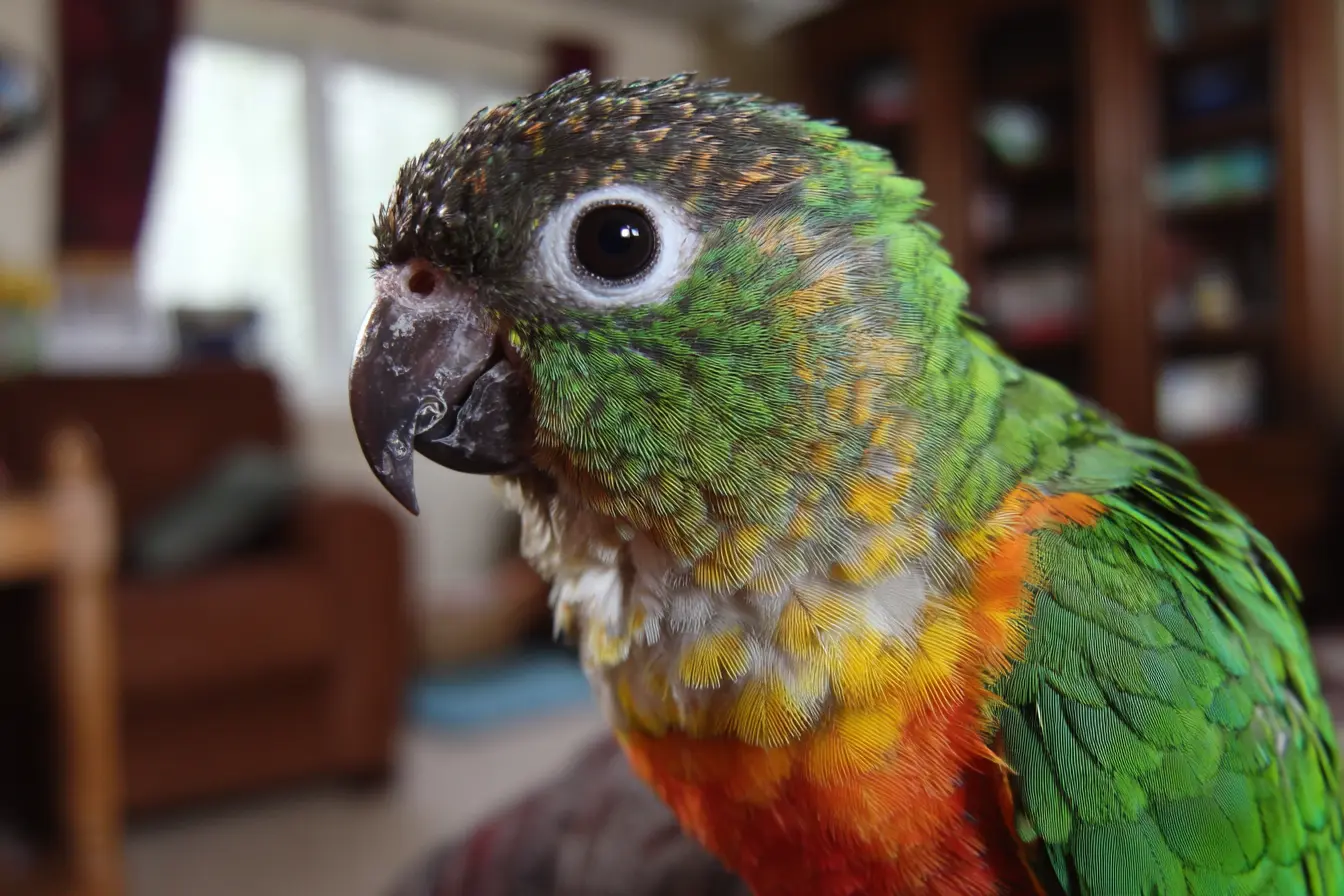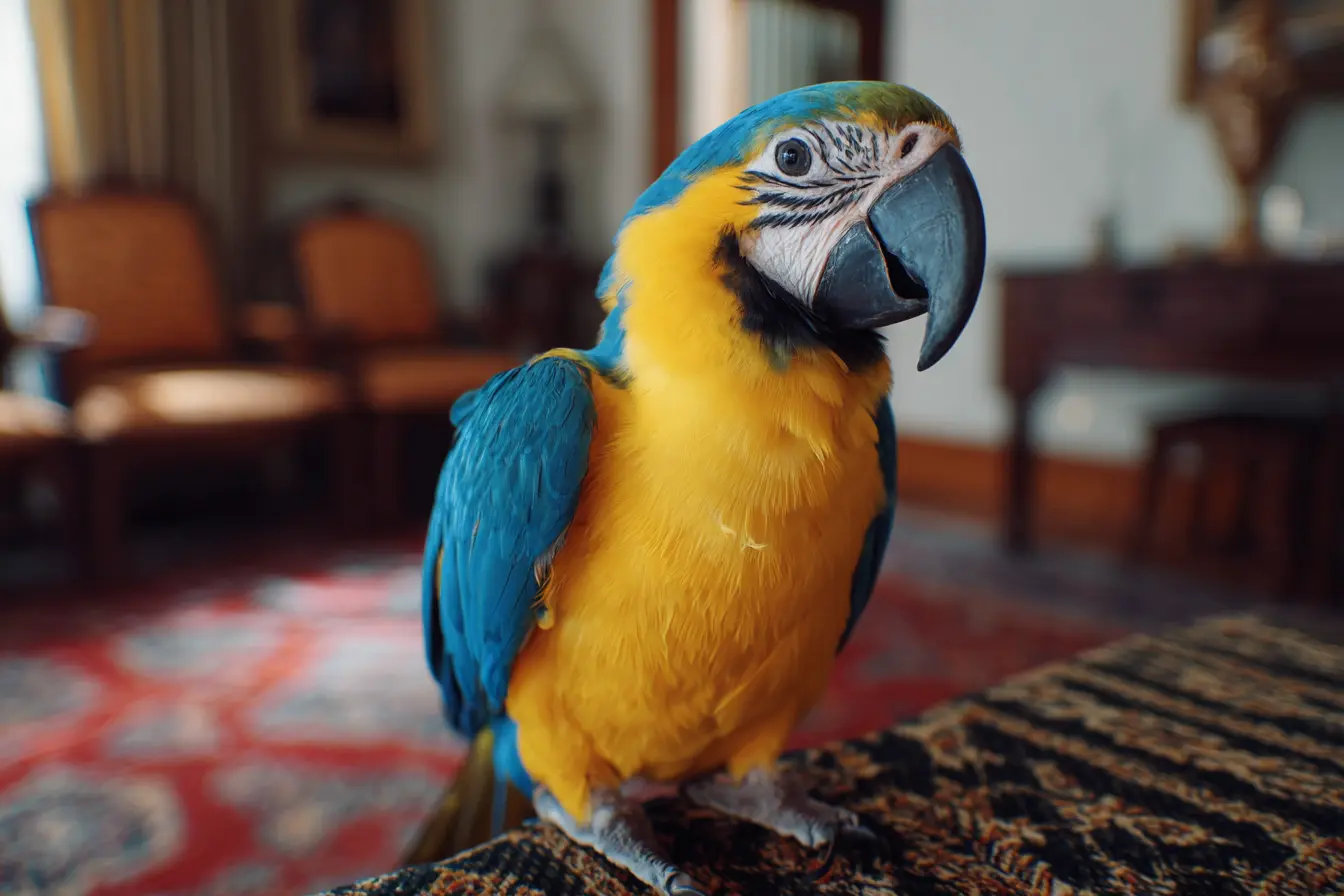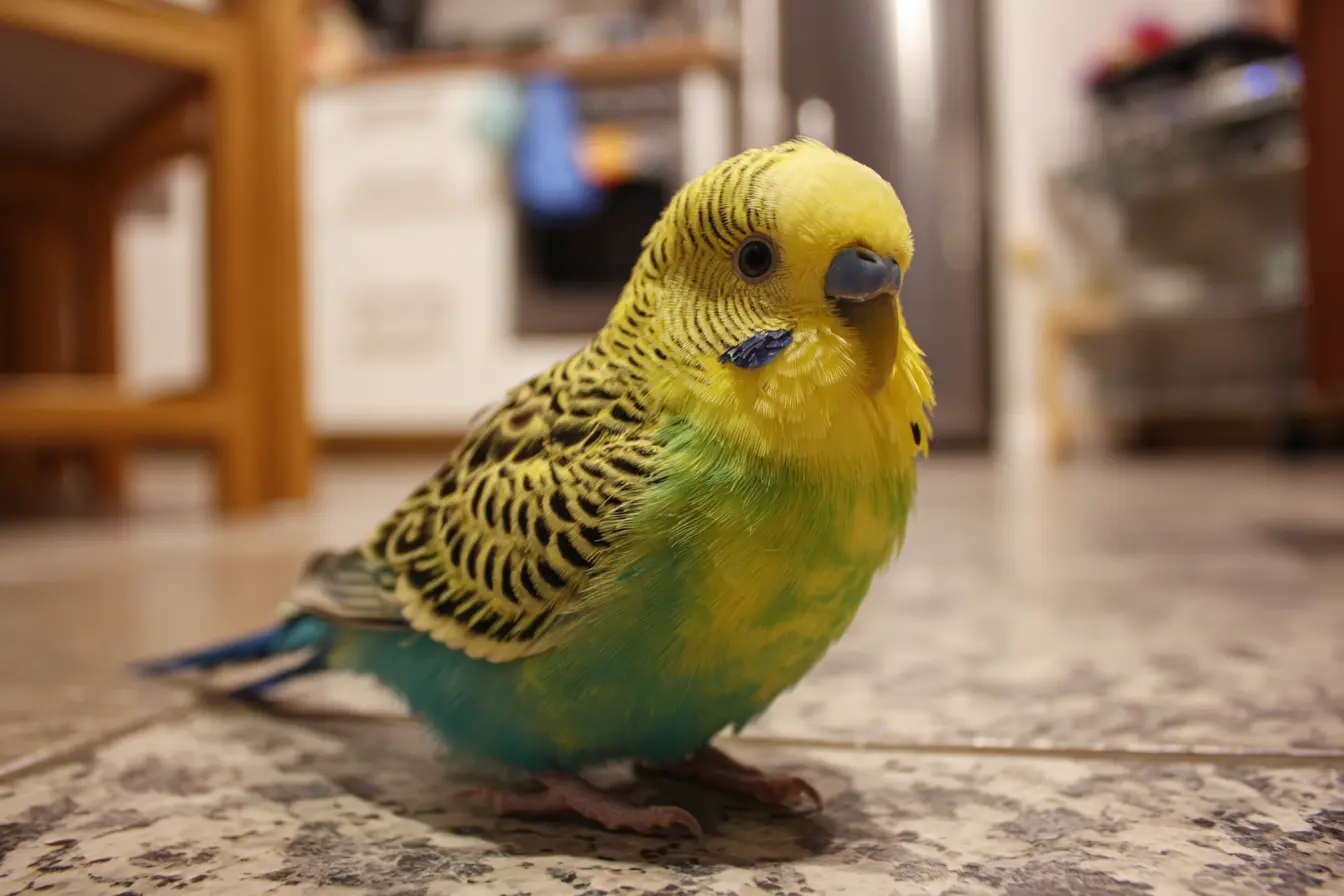
Aspergillosis in Pet Birds: Causes, Symptoms, and Treatment
Aspergillosis is a serious fungal infection that affects the respiratory system of pet birds. It is caused by Aspergillus species, most commonly Aspergillus fumigatus, a widespread fungus found in soil, decaying vegetation, and organic debris. Though present in most environments, Aspergillus typically only becomes problematic when a bird’s immune system is compromised or when hygiene is poor.
Pet birds such as parrots, budgerigars, canaries, and cockatiels are all susceptible to aspergillosis, particularly if they are stressed, sick, or exposed to a high spore load.
What Is Aspergillosis?
Aspergillosis is a non-contagious but opportunistic fungal disease. It primarily targets the lungs and air sacs of birds, though in severe cases it can spread to other organs. The disease can be acute (sudden and severe) or chronic (slow-developing), and it often proves fatal if not diagnosed and treated promptly.
Spores of Aspergillus are inhaled into the respiratory system, where they settle and grow, causing inflammation, tissue damage, and breathing difficulties.
Causes of Aspergillosis
Several risk factors can predispose birds to aspergillosis:
Poor Hygiene and Damp Conditions
Moist, dirty cages or aviaries provide the perfect breeding ground for fungal spores. Spores thrive in mouldy bedding, old food, or dusty environments.
Stress and Immunosuppression
Stress from overcrowding, travel, lack of stimulation, or changes in environment can weaken a bird’s immune system, making it more susceptible to infection.
Vitamin Deficiencies
Birds on seed-only diets are often deficient in vitamin A, which plays a key role in maintaining healthy respiratory linings. A deficiency can allow spores to take hold and multiply.
Inhalation of Spores
Environments high in dust (from seed husks, wood shavings, or feather dander) can increase the chances of inhaling fungal spores. Poor ventilation adds to the risk.
Previous Illness or Long-Term Antibiotics
A bird recovering from another illness or on prolonged antibiotic treatment may have a weakened immune response, increasing vulnerability to fungal infections.
Symptoms of Aspergillosis
Signs of aspergillosis vary depending on whether the infection is acute or chronic. Common symptoms include:
Respiratory Signs
- Laboured or open-mouth breathing
- Tail bobbing with each breath
- Wheezing or clicking sounds when breathing
- Sneezing or nasal discharge (less common)
- Voice changes or loss of vocalisation
General Signs
- Lethargy and weakness
- Poor appetite and weight loss
- Fluffed-up feathers
- Reduced activity or reluctance to fly
- Increased thirst and urination
Neurological Signs (if the infection spreads)
- Head tilt
- Incoordination or seizures
- Tremors
Because birds instinctively hide signs of illness, early symptoms are often subtle. Careful observation is crucial, especially in high-risk birds.
Diagnosing Aspergillosis
Diagnosis should always be made by an avian veterinarian. Aspergillosis can be difficult to diagnose due to the non-specific nature of symptoms, but typical steps include:
- Physical examination and history of risk factors
- Blood tests to check white cell counts and organ function
- Radiographs (X-rays) to look for masses or respiratory congestion
- Endoscopy to view the air sacs and lungs directly and collect samples
- Fungal cultures or PCR testing to confirm the presence of Aspergillus
Early diagnosis increases the chances of a successful outcome, especially in chronic cases.
Treatment of Aspergillosis
Treatment is often long and intensive, particularly in chronic infections. It typically includes:
Antifungal Medications
- Itraconazole, voriconazole, or amphotericin B are commonly used
- Medication may be given orally, via nebulisation (inhalation therapy), or by injection
- Long courses (often several months) are necessary to fully eliminate the infection
Supportive Care
- Fluid therapy to maintain hydration
- Nutritional support, including vitamin supplementation
- Warm, stress-free housing to aid recovery
Environmental Management
- Thorough cleaning and disinfection of the cage and living area
- Removal of damp, mouldy, or dusty materials
- Improved ventilation and air filtration
In severe cases, especially with neurological symptoms, the prognosis may be guarded despite aggressive treatment.
Preventing Aspergillosis
Prevention is far easier than treatment. You can minimise the risk of aspergillosis by:
Keeping the Environment Clean
- Regularly clean cages, perches, food bowls, and water dishes
- Remove uneaten fresh food before it spoils
- Use clean, dry, and dust-free bedding materials
- Ensure good ventilation in the bird’s environment
Supporting a Healthy Immune System
- Provide a balanced diet with fresh vegetables, pellets, and vitamin A-rich foods (e.g., carrots, sweet potato, kale)
- Avoid seed-only diets
- Minimise stress by maintaining a stable, enriched environment
Quarantining New Birds
- Isolate new birds for at least 30 days before introducing them to others
- Monitor for signs of illness and seek veterinary advice if needed
Avoiding Mould and Dampness
- Store food and bedding in dry conditions
- Avoid using hay, straw, or damp wood shavings in cages
- Clean up water spills promptly and dry all surfaces thoroughly
When to See a Vet
Seek immediate veterinary care if your bird:
- Is breathing with effort or open-mouth breathing
- Shows signs of weakness or lethargy
- Has unexplained weight loss or voice changes
- Becomes uncoordinated or has seizures
Prompt diagnosis and treatment are critical to improving survival chances.
Final Thoughts
Aspergillosis is a serious respiratory condition that can have life-threatening consequences for pet birds. While the fungus is common in the environment, good hygiene, a nutritious diet, and regular veterinary care can help prevent infection.
If your bird shows any signs of respiratory distress or general illness, do not delay in seeking professional advice. Early intervention and dedicated care can make a significant difference in recovery outcomes and quality of life.
Vets near you
Speciality vets
- Aquatics vet specialists
- Birds vet specialists
- Camelids vet specialists
- Cats vet specialists
- Cattle vet specialists
- Deer vet specialists
- Dogs vet specialists
- Equines vet specialists
- Exotic vet specialists
- Goats vet specialists
- Pigs vet specialists
- Poultry vet specialists
- Sheep vet specialists
- Small Mammals vet specialists
- Wild vet specialists
Vet facilities
- Accessible by public transport
- Blood testing
- Car park nearby
- Client car park
- Dentistry
- Diagnostic imaging
- Disabled public access
- Flea and worm treatments
- Microchipping
- Mobile services
- Neutering
- Open at weekends
- Out-of-hours service
- Referral interests
- Referrals only
- Street parking outside
- Toilets available
- Vaccinations
